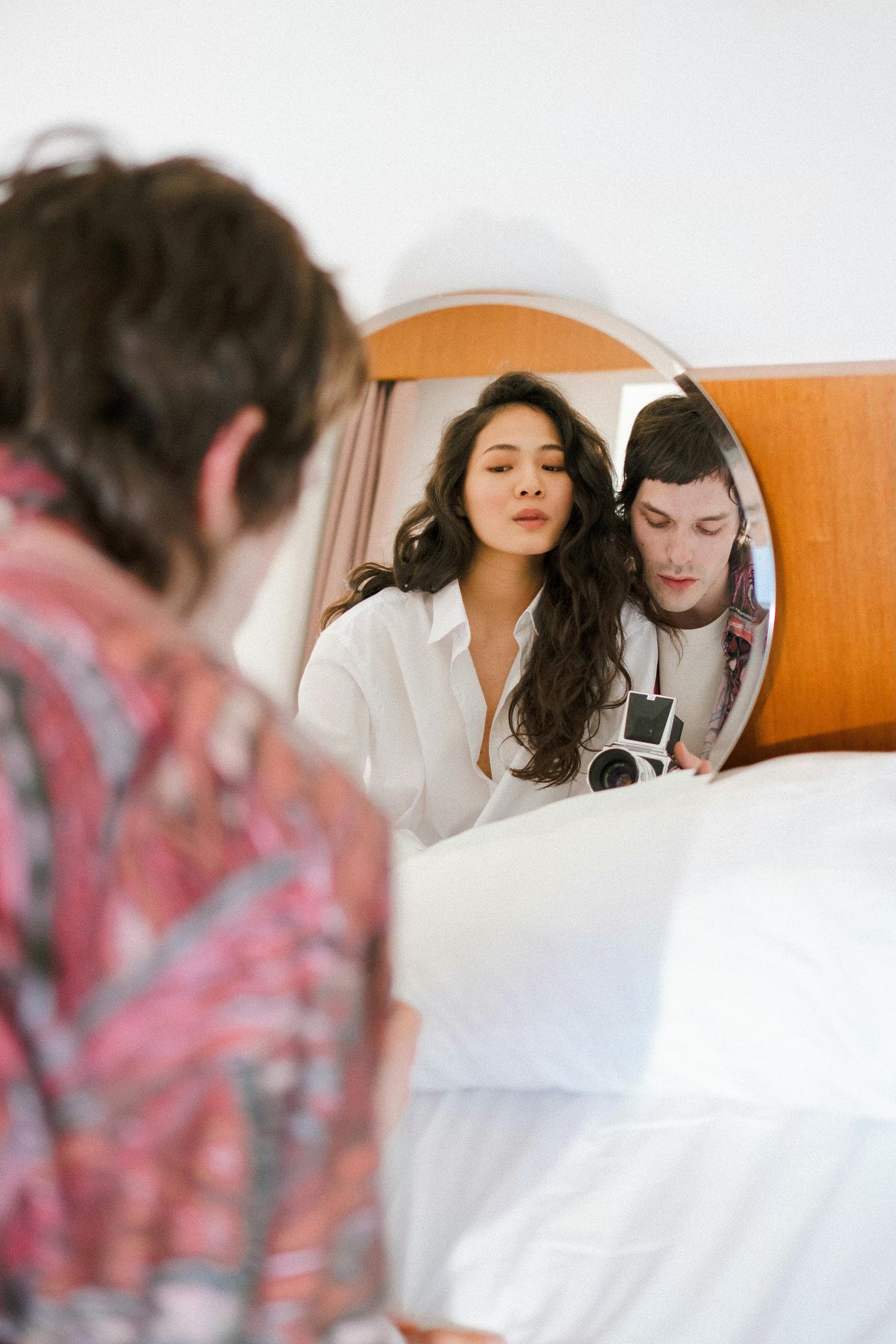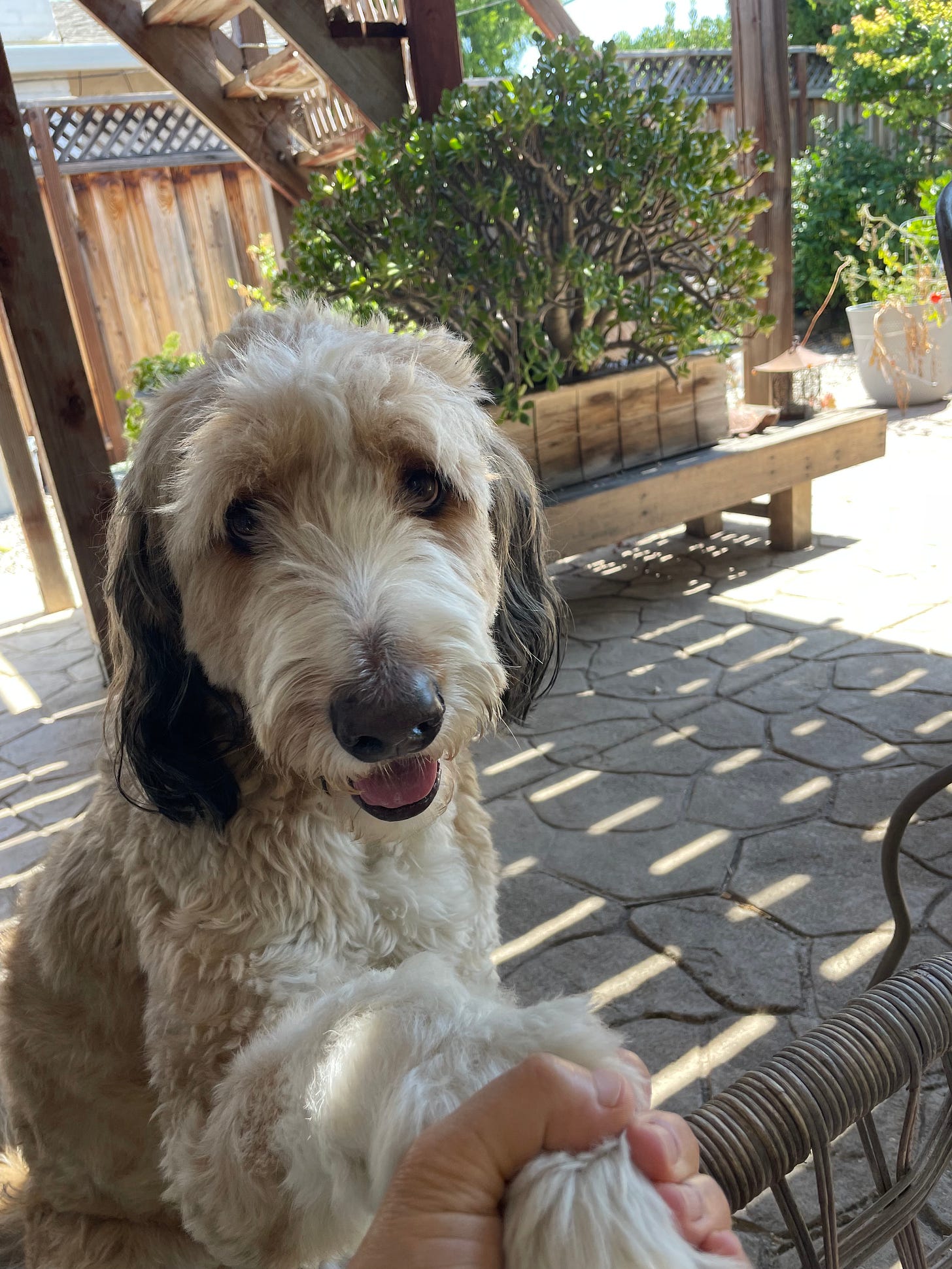The One Stephen Covey Metaphor That Explained Why I Felt So Alone in My Marriage
Why daily deposits can make or break your most intimate relationships
Welcome to Beyond Self Improvement issue #135. Every other Wednesday, I share an essay with practical ideas on finding personal freedom in an unfree world.
Dear Friend,
I stood in our living room, surrounded by our furniture, our books, our life together, and felt utterly alone.
The loneliness had been gnawing at me for months, maybe years. It wasn’t the kind of loneliness you feel when you’re by yourself. It was worse. It was the loneliness of being invisible to the person next to you.
I never told anyone. Complaining about my partner felt like a betrayal, as if I were dishonoring our relationship. So I kept the pain to myself, which only made the loneliness more unbearable.
In a moment of desperation, I opened Facebook and reached out to a woman I’d had a crush on years ago. I wasn’t looking for an affair. I was crying for help. I needed someone, anyone, to see my pain, to acknowledge I existed, to validate that what I was feeling was real.
She suggested we meet up during a road trip she was planning. I never replied. Years later, I confessed to her that I was profoundly lonely in that moment and apologized for reaching out. I wouldn’t wish that kind of desperate loneliness on anyone.
If I were this lonely, I realized, my wife must be too. One person can’t feel something that profound without the other feeling it as well. But neither of us knew what to do about it. We were two people sharing meals, a home, and a bed, yet we were completely disconnected from each other.
Years later, I came across an idea in Stephen Covey’s The 7 Habits of Highly Effective People that finally helped me understand what had been missing. He called it the emotional bank account.
The metaphor is simple. Every relationship has an invisible account. When we make deposits through kindness, attention, and genuine care, trust builds. When we make withdrawals through neglect, criticism, or indifference, trust erodes. And when the account runs dry, the relationship deteriorates into loneliness, resentment, or quiet resignation.
Reading this, I finally understood. Our respective accounts had been overdrawn for years, and neither of us knew how to make deposits.
The most essential deposit, I learned, is simply this. Sincerely seeking to understand the other person.
Not listening to respond. Not listening to fix. Not listening while thinking about what you want to say next. But to truly listen and see and understand who they are and what matters to them.
The problem is, we don’t actually do this. We listen through the filter of our own experience, our own autobiography. When someone shares something, we immediately think, “Oh, I know exactly what that’s like,” and we project our own story onto theirs.
In my marriage, I rarely felt seen. She knew my preferences. She bought me a yoga mat early on because we met in yoga, and I always borrowed mats from the studio. She noticed what I needed.
But she didn’t see me. She didn’t understand what mattered to me beneath the surface, what I feared, what I longed for, what made me come alive. And I didn’t see her either.
We were two people having parallel conversations, each reading our own autobiography into what the other was saying. No wonder we both felt invisible.
The second thing that was missing was unconditional love.
When we love someone without conditions, they feel safe, validated, and affirmed in who they are. Their natural growth is encouraged. They don’t have to perform or prove themselves. They can simply be.
But conditional love does the opposite. It says, “I’ll love you if you do this, act this way, meet my needs.” It puts people in a defensive position where they feel they have to prove their worth.
Looking back, neither of us felt safe to be ourselves. We were performing, managing each other’s expectations, walking on eggshells. The intimacy we craved required vulnerability, but vulnerability requires a sense of safety. And safety was precisely what we didn’t have.
I remember the profound loneliness of lying next to someone and feeling utterly alone. We shared breakfast and dinner. We were friends who did things together. But I didn’t feel deeply loved, valued, or appreciated. I felt invisible.
And in fairness, I wasn’t offering her unconditional love either. I did eventually get there, near the end of our marriage. But by then, it was too late. The account was too overdrawn to repair.
Here’s the truth I’ve come to understand. Neither of us had these skills.
We weren’t deliberately withholding love or refusing to listen. We were operating from our unconscious conditioning, our wounds, our learned patterns. We were doing the best we could with the awareness we had at the time.
The emotional bank account metaphor didn’t teach me to blame myself or her. It taught me to see what was invisible before. And once I could see it, I could choose differently.
Today, I practice these deposits more consciously. I work to listen without projecting my own story. I strive to create a sense of safety to foster genuine presence. And when I make withdrawals, knowingly or unknowingly, I do my best to rebuild trust by apologizing sincerely.
I don’t always succeed, and relationships remain complicated and messy. But this metaphor helps me see the patterns I couldn’t see before, and I can’t unsee them now.
If this resonates, share it with someone who might be feeling invisible in their relationship. Sometimes, the right metaphor at the right time can illuminate what’s been hidden all along.
P.S. You don’t need to be married to benefit from this insight. The emotional bank account applies to every relationship that matters - partners, friends, parents, children. Once you see it, you’ll recognize it everywhere.
Keep making daily deposits,
Ryan




Thank you. It is always good to have these reminders.
I needed to hear this today!!